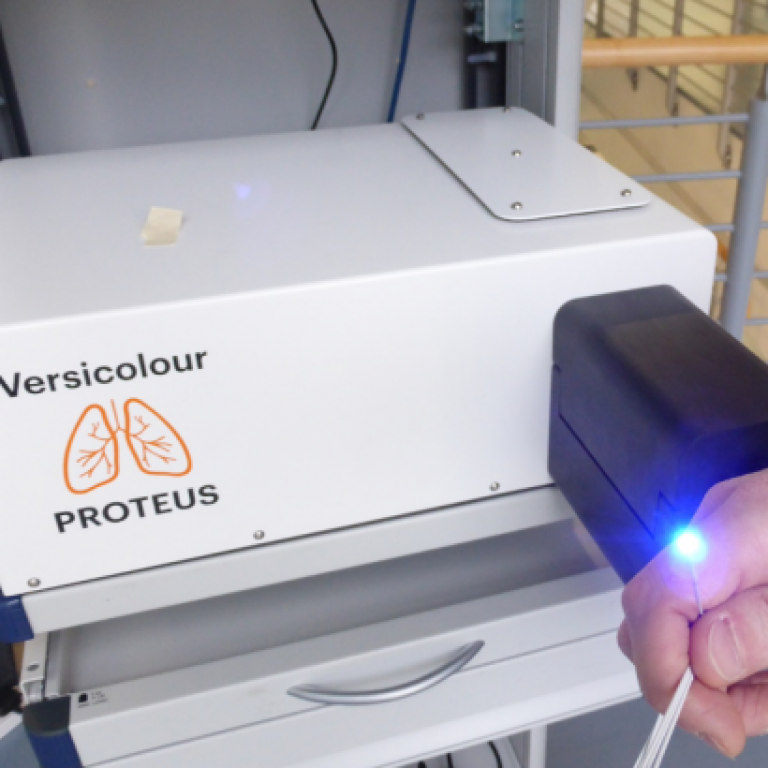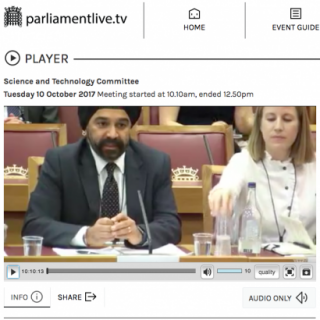Colocation is crucial model to implement parliament's Life Sciences and Industrial Strategy
9 January 2018
We welcome the recently launched inquiry into the Life Sciences and the Industrial Strategy by the House of Lords Science and Technology Committee

We welcome the recently launched inquiry into the Life Sciences and the Industrial Strategy by the House of Lords Science and Technology Committee
The committee’s inquiry aims to strengthen strategy in this area and advise on the report’s effective implementation.
The Life Sciences and the Industrial Strategy outlines industry-led proposals for how the government can work alongside the £64 billion life sciences sector to boost business, help improve the nation’s health and build the UK’s status as a world leader. This strategy is detailed in full in Sir John Bell’s report.
The Science and Technology Committee held multiple sessions throughout October as part of their inquiry into the strategy. They heard evidence from various witnesses from within the scientific field, allowing them to identify areas which they felt could be improved and how best to implement the strategy. Their session on Tuesday 10 October 2017 had a particular research focus; the first section of the session heard from representatives from research councils and the second section heard from representatives from strong research universities, including Prof David Price, UCL’s Vice-Provost (Research).
The meeting can be watched in full on Parliament Live TV.

One of the most significant issues to come out of this meeting was the importance of enabling collaboration, through colocation and close links between clinical, research and industry partners.
Prof David Price emphasised the need for strong partnerships between universities and hospitals. He stressed that biomedical research centres (BRCs) needed to be preserved and fostered further, highlighting that the 3 BRCs that UCL hosts with Moorfields Eye Hospital, Great Ormond Street Hospital and University College London Hospital play an integral role in accelerating trials and translating research. In conjunction with this, he pointed out that the presence of over 150 clinical lecturers at UCL was key to strengthening these collaborative links and that it was essential moving forward that clinical practitioners are embedded within research environments.
The research council representatives also emphasised the centrality of multidisciplinary collaboration to the future of the healthcare industry. It was said that this could be demonstrated by the recent 2017 Nobel Prize in medicine, which was awarded to a trio of scientists for their joint research efforts rather than to an individual. Dr Annette Bramley, the Healthcare Technologies Lead for the Engineering and Physical Sciences Research Council (EPSRC), particularly highlighted the role that colocation can play in facilitating successful collaboration.
Colocation is a proven example of a structure that helps to enable the translation of interdisciplinary research. Dr Bramley noted how successful colocation had been shown to be at many research universities. She particularly drew on the example of the interdisciplinary Proteus team based at the University of Edinburgh. The Proteus team are working to speed up the time it takes to make an accurate diagnosis of lung disease. This is done by using a microendoscopic fibre bundle to inject ‘smart’ fluid into the lungs, which then makes any pathogens fluoresce and therefore observable.
Dr Bramley stressed how essential the colocation model has been in accelerating their research, pointing out that the centre brings together all the key stakeholders like engineers, clinicians, chemists and business developers in one space. This has enabled the Proteus researchers to communicate effectively and maximise their impact; they have since won patents, spun out into a company and are preparing to perform the first in vivo human clinical studies.
An associated issue highlighted within the session as central to accelerating industry growth is the need to remove barriers preventing the adoption of innovation into the NHS. Representatives pointed out that too many of the cutting-edge advancements coming out of research universities in the UK were then struggling to be commercialised and that it is imperative to incentivise the early clinical adoption of innovations into the NHS to combat this problem. The model of colocation within hospitals would help facilitate this and encourage innovations to be harnessed and commercialised.
The Institute of Healthcare Engineering supports this view that collaboration and colocation are essential models to facilitate progress, research advancements and industry growth within the healthcare field.
If you are interested in learning more about the role and work of the Science and Technology Select Committee within the parliamentary process and how researchers can engage with them to influence policy then register now for UCL Public Policy’s 2-hour masterclass 10.00 – 12.00, Thursday 16 November 2017, Haldane Room UCL.
 Close
Close

